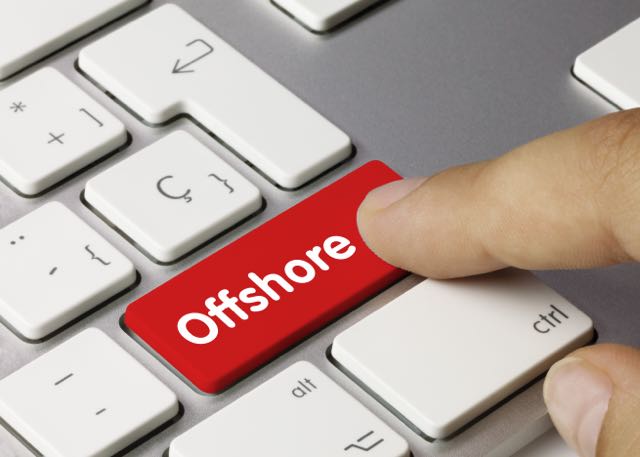Discover How Offshore Company Formation Can Help You Gain Business Freedom.
Discover How Offshore Company Formation Can Help You Gain Business Freedom.
Blog Article
Why Offshore Firm Formation Is the Trick to Increasing Your Global Organization
Offshore company development offers a strategic avenue for services looking for to increase their worldwide footprint. By taking advantage of desirable regulative atmospheres, firms can not just enhance their tax obligation commitments yet additionally boost their functional flexibility and privacy. As services navigate complexities in international markets, recognizing the intricacies of overseas structures ends up being crucial. The implications of such a relocation prolong beyond simple economic benefits; they can essentially improve a business's approach to global competitiveness. What variables should be taken into consideration to make best use of these benefits?
Advantages of Offshore Companies
Offshore business use a variety of substantial advantages that can boost financial effectiveness and give critical benefits for organization proprietors. One of the main benefits is tax obligation optimization. Several jurisdictions offer positive tax obligation regimens, enabling services to considerably lower their total tax obligation liability. This can cause raised productivity and better reinvestment opportunities (offshore company formation).
Furthermore, overseas business commonly offer improved personal privacy and property defense. Local business owner can secure their individual properties from possible legal cases or creditors, securing their riches and making certain financial protection. The anonymity provided by particular territories can likewise deter undesirable analysis and maintain confidentiality in service transactions.

Last but not least, overseas frameworks can improve operational flexibility. Local business owner can discover numerous company structures that line up with their strategic goals, enabling for easier monitoring of global purchases and financial investments. Jointly, these advantages make overseas companies an eye-catching choice for business owners looking for to maximize their business endeavors.
Secret Factors To Consider for Development
When considering the formation of an offshore business, numerous vital factors to consider should be assessed to guarantee a successful facility. It is vital to pick a jurisdiction that aligns with the company's strategic goals and operational demands.
Next, understanding the regulatory requirements is essential. This consists of compliance with regional legislations, licensing, and enrollment procedures. Engaging with lawful and economic advisors who focus on overseas developments can assist navigate these intricacies and guarantee adherence to all essential guidelines.
In addition, take into consideration the framework of the business. The option between a minimal liability firm, firm, or collaboration will affect responsibility, tax effects, and operational adaptability.
One more essential factor is the financial facilities available in the selected territory. Accessibility to robust financial services can assist in transactions and boost company effectiveness.
Tax Advantages and Incentives
Establishing an overseas company can unlock a series of tax benefits and motivations that significantly enhance its economic feasibility. Lots of jurisdictions offer beneficial tax programs, including low or no company tax rates, which can result in substantial savings for services. Countries such as the British Virgin Islands and the Cayman Islands provide tax-neutral atmospheres, allowing companies to preserve more of their earnings.
In addition to minimized tax rates, offshore firms may benefit from numerous motivations intended at drawing in foreign financial investment. These can include tax holidays, exceptions on specific kinds of earnings, and structured governing procedures. Such motivations can substantially decrease operational costs, allowing companies to reinvest cost savings into development efforts.
Moreover, overseas frameworks can facilitate tax obligation planning strategies, such as earnings shifting and loss countering, which better maximize tax liabilities. By purposefully utilizing these benefits, businesses can create a more affordable financial structure.
Access to Worldwide Markets
The strategic formation of an overseas business not just gives tax advantages but likewise opens up methods for access to international markets. By running from a jurisdiction Source that urges worldwide company, firms can engage with varied economic situations and take advantage of a wider customer base. This geographical versatility boosts the ability to negotiate positive terms with vendors and partners across various regions.
Furthermore, offshore business commonly take advantage of reduced regulatory barriers, enabling smoother entry into arising markets. This is particularly crucial for services looking to broaden right into countries with complicated lawful frameworks, where regional unification might present substantial difficulties (offshore company formation). The capacity to run without the regular restrictions of a residential structure allows companies to adapt swiftly to market needs and introduce without fear of extreme oversight
Furthermore, an overseas company can help with much easier money purchases, enabling companies to make use of desirable currency exchange rate and reduce monetary threats. By purposefully placing themselves in key international markets, companies can take advantage of the advantages of regional customer patterns and choices, ultimately driving development and improving their worldwide footprint. Therefore, offshore business formation is an important method for any type of service desiring attain worldwide success.
Enhancing Company Adaptability
Offshore business formation substantially improves company flexibility, enabling business to navigate transforming market conditions with agility. By establishing an overseas entity, organizations can utilize diverse regulatory frameworks that typically supply much more beneficial operating conditions. This allows them to adjust swiftly to shifts in customer demand, emerging modern technologies, or affordable pressures without the restraints typically connected with residential policies.

In addition, offshore structures usually enable for streamlined decision-making procedures, helping with rapid actions to market chances Look At This or challenges. Firms can reallocate sources, pivot techniques, or get in new markets with very little administrative delays, therefore preserving an affordable edge. This versatility is particularly vital in today's fast-paced worldwide economy, where dexterity can make the distinction between success and failing.
Additionally, the capability to run in multiple territories can provide a barrier against local economic recessions, permitting companies to navigate to this site move emphasis to more rewarding markets. By expanding their operational bases, companies not only boost their resilience but likewise place themselves for sustainable development. In recap, offshore firm development is a tactical relocation that equips organizations to remain flexible, responsive, and inevitably effective in an ever-evolving international landscape.
Conclusion

Report this page